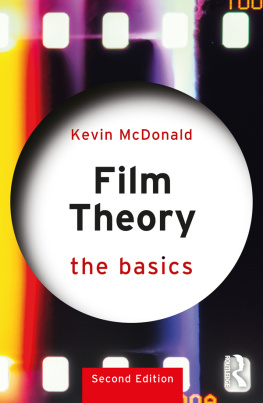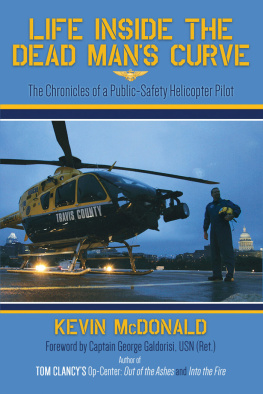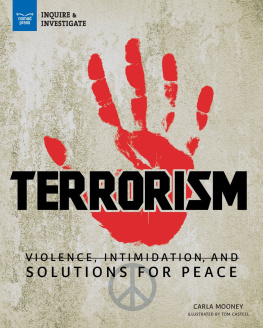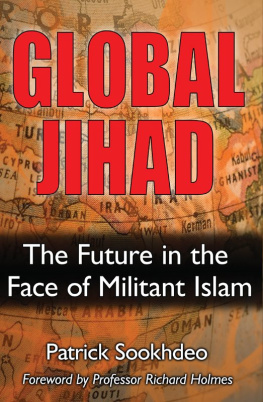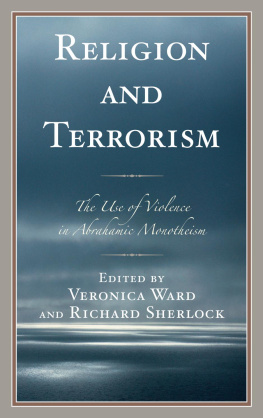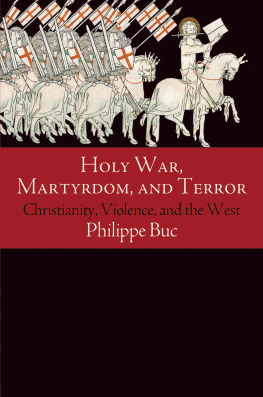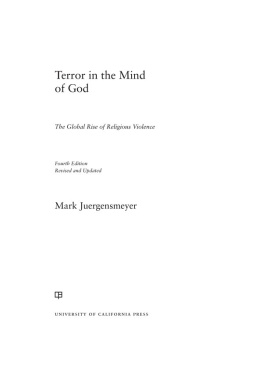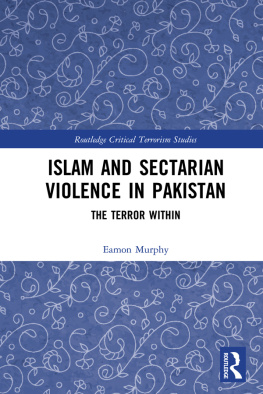Our Violent WorldTo the memory of Dora Clemencia Azmitia Dorantes. Known to her friends as Menchy, she was involved in indigenous and urban education projects in her country, Guatemala. On 21 September 1981, when she was 23 years old and three months pregnant, she was taken by a death squad.
Our Violent World
Terrorism in Society
Kevin McDonald
Kevin McDonald 2013
All rights reserved. No reproduction, copy or transmission of this publication may be made without written permission.
No portion of this publication may be reproduced, copied or transmitted save with written permission or in accordance with the provisions of the Copyright, Designs and Patents Act 1988, or under the terms of any licence permitting limited copying issued by the Copyright Licensing Agency, Saffron House, 610 Kirby Street, London EC1N 8TS.
Any person who does any unauthorized act in relation to this publication may be liable to criminal prosecution and civil claims for damages.
The author has asserted his right to be identified as the author of this work in accordance with the Copyright, Designs and Patents Act 1988.
First published 2013 by
PALGRAVE MACMILLAN
Palgrave Macmillan in the UK is an imprint of Macmillan Publishers Limited, registered in England, company number 785998, of Houndmills, Basingstoke, Hampshire RG21 6XS.
Palgrave Macmillan in the US is a division of St Martins Press LLC, 175 Fifth Avenue, New York, NY 10010.
Palgrave Macmillan is the global academic imprint of the above companies and has companies and representatives throughout the world.
Palgrave and Macmillan are registered trademarks in the United States, the United Kingdom, Europe and other countries
ISBN 9780230224735 hardback
ISBN 9780230224742 paperback
This book is printed on paper suitable for recycling and made from fully managed and sustained forest sources. Logging, pulping and manufacturing processes are expected to conform to the environmental regulations of the country of origin.
A catalogue record for this book is available from the British Library.
A catalog record for this book is available from the Library of Congress.
10 9 8 7 6 5 4 3 2 1
22 21 20 19 18 17 16 15 14 13
Printed and bound in Great Britain by
CPI Antony Rowe, Chippenham and Eastbourne
Preface and Acknowledgements
A book is the product of exchanges and experiences, often too numerous to adequately acknowledge, and this is certainly the case with this one. Its origins lie in teaching I was undertaking while at the University of Melbourne. It draws heavily on research undertaken while I was a Marie Curie International Fellow at Goldsmiths College, London, while also benefiting from the critical engagement of members of a doctoral seminar I taught at the cole des Hautes tudes en Sciences Sociales in Paris. At Goldsmiths, Les Back, Celia Lury, Caroline Knowles and Bev Skegs offered me a supportive and challenging environment, in both the Department of Sociology and the Centre for Urban and Community Research, while sections of the book draw on research undertaken with Mohammed Ilyas, and greatly benefited from the support of Jane Offerman. In Paris, the Centre dAnalyse et dIntervention Sociologiques at the EHESS offered me a stimulating environment to explore the experience of violence, made possible by the generous support of Philippe Bataille, and the reader may recognize the extent of my debt to exchanges with Michel Wieviorka, Farhad Khosrokhavar, Franois Dubet, Geoffrey Pleyers, Yvon le Bot, Antimo Farro and Alain Touraine. In Melbourne I have greatly benefited from the support of Victoria University, and in particular its Centre for Cultural Diversity and Wellbeing. This book draws heavily on two publicly funded research projects: a Marie Curie International Fellowship supported by the European Union, and a Discovery Project supported by the Australian Research Council. Without the support of such public funding bodies, research into critical social transformations would no longer be possible.
A book is also a product of exchange and discussion with editors, and in this case exchanges with Anna Marie Reeve and her predecessors at Palgrave Macmillan played a key role in shaping this book. It sets out to explore the contribution that the social sciences might make to understanding and responding to the violence that has played such a role in reshaping societies over the past decade. In particular, it sets out to explore violence as experience, not simply as an idea or a concept. This has not been easy. Discussing actual violence needs considerable care, in part because violence is disturbing. In writing this book I did not want to amplify the impact of violence nor contribute to forms of trauma and shock. But it has sought to engage with experiential dimensions of violence, attempting to explore violence as a form of agency, one that is embodied, shaped by an imaginary extending beyond the boundaries of day-to-day experience. This has meant trying to reconstruct dimensions of the experience of people who have engaged in violence, not to demonise them, nor in any way to justify them, but above all not to reduce them to easily understood caricatures. This is an ethical as well as an intellectual position. In working through these questions, discussions with my editors, together with the generous comments of anonymous reviewers, have proved invaluable.
I was in central London using the transport system on the day of the attacks of 7 July 2005, and experienced the resulting close-down of the city, and I have been involved with the Council for Assisting Refugee Academics (CARA) working with Iraqi academics coping with a society and universities smashed by the War on Terror. These personal experiences, even though very much on the edges of some of the events discussed in this book, have alerted me to the responsibility we take on when writing about actions that have led to death, suffering and destruction. It means avoiding a breathless tone that some academic analyses embrace, while not skirting away from violence as an event, in particular in the contemporary world where violence increasingly seeks to kill.
The questions this book explores are critical for the social sciences, Sociology in particular. But they are also questions we confront and live as people. While we academics are often protected by libraries and university life, the research that shapes this book has involved moving beyond those walls, from interviewing supporters of jihad to exploring the increasing importance of extreme violence and its search for death. At times this has not been easy, and the support I have received from my wife Lorna Payne, together with that of our children Sarah, Lynne and Gabriel, has been a constant reminder of the hope, mess and wonder of life.
KEVIN MCDONALD
Centre for Cultural Diversity and Wellbeing
Victoria University, Melbourne
Centre dAnalyse et dIntervention Sociologiques,
cole des Hautes tudes en Sciences Sociales, Paris
Also by Kevin McDonald
STRUGGLES FOR SUBJECTIVITY: Identity, Action and Youth Experience
GLOBAL MOVEMENTS: Action and Culture
The Return of Violence
The early years of the twenty-first century have been shaped by an accelerating shift of social life from national societies to a new global reality. The signs are widespread: the increasing integration of economic and financial systems, population flows and mobility, a new awareness of shared realities, from global films to fashions, the pervasive presence of the Internet and the increasing mediatization of social life, new global risks such as climate change, epidemics and global crime. This new reality brings with it extraordinary possibilities, opening up exchanges, industries and creative flows, evident in the rise of social media and a cluster of practices around new forms of social connection. But at the same time, increased levels of complexity and integration bring with them new types of vulnerability and global shock waves, evident in the reverberations and amplifications of financial crises, flows of disease or the dislocations associated with climate change.




